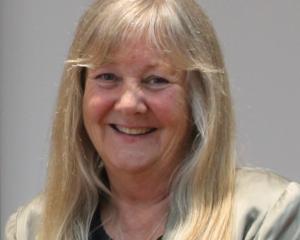
Today as we remember the sixmillion Jews that were murdered by the Nazis during World War 2, these words feel more pertinent than ever. They are the words of Marek Edelman, a Jewish youth leader who survived the Warsaw Ghetto Uprising.
For the first time, an event to recognise United Nations International Holocaust Remembrance Day is being held in Dunedin. This year’s marks 80 years since the Warsaw Ghetto Uprising. It may have occurred generations ago on the other side of the world, but there is still much we can learn from it today.
When the Nazis entered the Warsaw Ghetto to deport the remaining 50,000 Jews to the Treblinka and Majdanek death camps, they expected to find cowering, defeated and weakened people. They were all that were left of the 400,000 Jewish people forced to live in the walled-in ghetto. The rest had died of disease or starvation, or had already been sent to death camps.
Instead the Nazis were met with some of the fiercest resistance during the entirety of World War 2 and the Holocaust. For nearly a month, fewer than 2000 Jewish teenagers and young adults fought the Nazis street by street, with few weapons. They knew they were facing certain death. They had nothing to lose.
Although the uprising ultimately failed and those that weren’t shot in the uprising were sent to their deaths, the courage of these youths inspired other resistance movements across German-occupied Europe. Their actions helped alert the world to the Nazis’ barbaric actions.
Young people today face a new kind of racism. While parents in the ghetto tried to protect their children by not telling them what was happening around them, young people today are more exposed to rising hatred and racism than anyone else — through social media.
Influencers such as US rapper Kanye West and kick boxer Andrew Tate dress up Holocaust denial and misogyny in designer fashion and sports cars. They make hatred seem cool.
Internet conspiracies have helped create a post truth world where, along with the rise of the antivaccination movement, fact has become disputable. Fake news has allowed pockets in our society to reject history and rewrite the past as an evil plot by those trying to take away their freedoms.
Hatred is easy.
Eighty years after the Warsaw Ghetto Uprising, can we say we have created a better world for our children, and their children? In recent years, families of Indian descent in Dunedin and Auckland have been subjected to racial abuse, local body candidates from Chinese backgrounds have had their hoardings vandalised and white supremacy groups have flourished. Antisemitism is on the rise. The Christchurch mosque attacks shattered the illusion many New Zealanders had that we were immune to extremism and mass shootings. We are not.
The world should have changed when the horrors of Nazi atrocities were discovered. No young person in New Zealand should grow up fearing that their religion, culture, sexual orientation or the colour of their skin makes them a target of abuse.
As the sun rises each year on January 27, New Zealand becomes the first country in the world to hold services for International Holocaust Remembrance Day.
Today there will be services at seven locations across New Zealand.
As the years pass and the last remaining Holocaust survivors die, it becomes more and more important to remember their stories and their sacrifices. Otherwise, the loss of firsthand experiences risks empowering those who want to deny history.
And as the years pass, fewer and fewer New Zealanders know about the Holocaust. A New Zealand Jewish Council survey released last year found 17% of New Zealanders knew virtually nothing about the Holocaust and only 42% could correctly identify that sixmillion Jewish people were killed. More worryingly 6% thought Jews brought the Holocaust on themselves. These statistics echo similar surveys overseas.
The Holocaust teaches us the danger of ignoring racism. We must teach future generations that allowing hate to grow can normalise racism and hate and lead to atrocities such as genocides. This is the work of the Holocaust Centre of New Zealand.
The courage and bravery of those young people who took part in the Warsaw Ghetto Uprising inspires us to help change society by standing up for what is right — treating everyone as equal no matter their background or their beliefs.
Love requires effort. But it is an effort we must all make.
■ Deborah Hart is the Holocaust Centre of New Zealand chairwoman.











